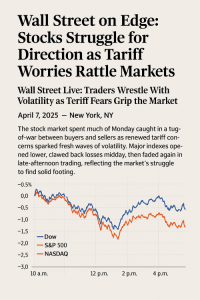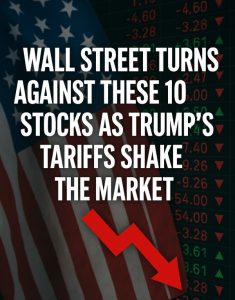Qualcomm Approached Intel About a Takeover in Recent Days: What It Could Mean for the Tech Industry

Qualcomm Approached Intel About a Takeover in Recent Days: What It Could Mean for the Tech Industry
In a move that has surprised many in the tech world, Qualcomm recently approached Intel to discuss the possibility of a takeover, a development that could send shockwaves across the industry. If such a merger were to happen, it would mark a seismic shift in the global semiconductor market, a space already marked by fierce competition and rapid innovation.
The Backdrop of the Semiconductor Race
For those unfamiliar, Qualcomm and Intel are two titans of the semiconductor industry, though they play in somewhat different arenas. Qualcomm is best known for its leadership in mobile chips, particularly those powering smartphones and tablets. Its technology is central to the global rollout of 5G, giving it a strategic advantage as networks upgrade.
Intel, on the other hand, has long dominated the PC and server chip market, though it has faced increasing pressure from competitors like AMD and, more recently, Apple’s in-house chip development for its Mac lineup. While Intel has been working hard to regain its technological edge, Qualcomm’s recent interest could signal a desire to tap into Intel’s market dominance in computing while expanding its own capabilities in a rapidly evolving tech landscape.
Why Qualcomm May Be Eyeing Intel
Qualcomm’s approach is no coincidence. With demand for semiconductors surging across industries—from smartphones and laptops to cars and home appliances—the global chip shortage has exposed vulnerabilities in the supply chain. By merging with Intel, Qualcomm could potentially secure better control over chip production, improve its technological offerings, and even expand into new sectors like personal computers and data centers.
Intel has been heavily investing in its own chip manufacturing facilities, aiming to reduce reliance on third-party fabricators like Taiwan’s TSMC. A takeover by Qualcomm could align with Intel’s long-term strategy to not only retain market share but to fend off growing competition from companies like Nvidia and AMD.
The Challenges and Potential Roadblocks
A Qualcomm-Intel merger would likely face intense scrutiny from regulators in the U.S. and abroad, particularly with growing concerns about market monopolies and the concentration of power within certain tech sectors. Both companies play key roles in national security due to their supply of semiconductors for military and communications applications.
Moreover, the logistical hurdles of integrating two massive organizations should not be underestimated. Qualcomm and Intel have fundamentally different business models, supply chains, and customer bases. The cultural and operational challenges alone could be staggering.
Another potential sticking point could be Intel’s value proposition to shareholders. Given that Intel has been making strides to regain its competitive edge—especially in areas like AI and data center chips—it remains to be seen whether Intel’s leadership and investors would even entertain such an offer.
What’s Next?
While it’s still early in the discussion phase, Qualcomm’s approach to Intel shows just how important the next few years will be for the semiconductor industry. As devices become smarter, faster, and more integrated into daily life, the companies that can adapt the quickest will stand to gain the most.
Whether this takeover happens or not, one thing is clear: the semiconductor space is undergoing a major transformation, and companies are looking for every edge they can get. If a Qualcomm-Intel deal were to materialize, it could forever change the face of tech.
For now, industry insiders are keeping a close eye on any further developments between the two chip giants. The stakes are high, and the ripple effects could extend far beyond just the tech world, influencing everything from global supply chains to consumer electronics and even national security.






